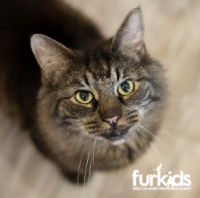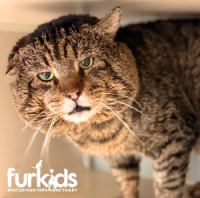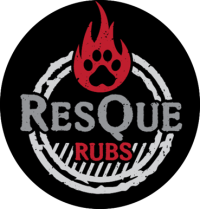10 Ways to Keep Your Pets Healthy This Summer
 Summer means fun outdoors for your family, including your pets. Follow these simple steps to a happy and healthy summer for the entire family:
Summer means fun outdoors for your family, including your pets. Follow these simple steps to a happy and healthy summer for the entire family:
- Walk with caution. Don't walk your dog during the day's highest heat and humidity, which is usually between 1 and 4 PM. This is especially important for dogs with short snouts, such as bulldogs, who can't pant as efficiently in humid weather due to their narrowed nostrils and windpipes.
- Never leave a pet in the car. Even if windows are cracked, the interior temp can rise by 19°F in as little as 7 minutes. On a hot day, this can be deadly. If you see an animal in a hot car please don't leave it! Search for an owner, call the police and do what you have to do to get that pet out of the car! Watch this video of a veterinarian sitting for 30 minutes in a parked car with the windows cracked to get some perspective.
- Keep it cool indoors. Turn on the AC in your home, especially if you'll be out of the house for several hours. If it's too warm for you, it's too warm for your pet.
- Teach your dog (or cat) to swim. Not all pets inherently know how to swim and can panic when thrown in the water for the first time. Maybe sure your pet CAN swim before visiting a lake, pool or ocean.
- Create an exit strategy. Teach your pet how to get out of the pool by using the stairs 5 to 10 times in a row. This will help them learn where the stairs are, in case they accidentally fall in and need to climb out.
- Use a lifejacket. Have your dog wear a life vest in a bright color in any body of water to help her stay afloat and ensure that she can be seen by swimmers and boaters. Let the dog get used to wearing it in your yard first.
- Send parasites packing. Hookworms, fleas, ticks and heartworms are more prevalent during the summer and can gain access to your pet through mosquito bites, neighborhood walks, parks or visitors. Ask your vet for a prescription for heartworm medication, and make sure your pets are on flea and tick repellents. Prevention is MUCH CHEAPER than cure. Flea/tick medicine for a cat is about $10/month and flea/tick/heartworm medicine for a dog is about $25/month. Treating your home and carpet for fleas, getting the fleas or ticks off your animals or treating your dog for heartworm disease can cost hundreds or thousands of dollars.
- Skip the azaleas. These common backyard shrubs can be toxic for dogs and cats if ingested, resulting in drooling, vomiting, diarrhea, heart arrhythmias, or an abnormal heart rate.
- Limit the lilies. A daylily or Asiatic, Easter, or Stargazer lily and their pollen can cause acute kidney failure in cats. Ingestion of as little as two to three leaves can be fatal, so remove these plants from your yard if you let your cat out.
- Keep pets away from fireworks. We cannot stress enough how important it is that your pets stay safe inside this Fourth of July. Cats and dogs, no matter how friendly and calm, often resort to fight or flight mode when they hear fireworks and BOLT! This instinct causes them to forget everything they know like, "Mom and dad are safe" and "Don't run in front of cars." More dogs and cats are lost Fourth of July than any other day of the year, so don't let your family pet be a statistic. Keep them safe inside! Even better, make sure their tags and microchips are up to date with current information in case an accident happens. They are called accidents for a reason, you don't ever think they will happen to you...








_200_49.png)



_200_175_75.JPEG)










